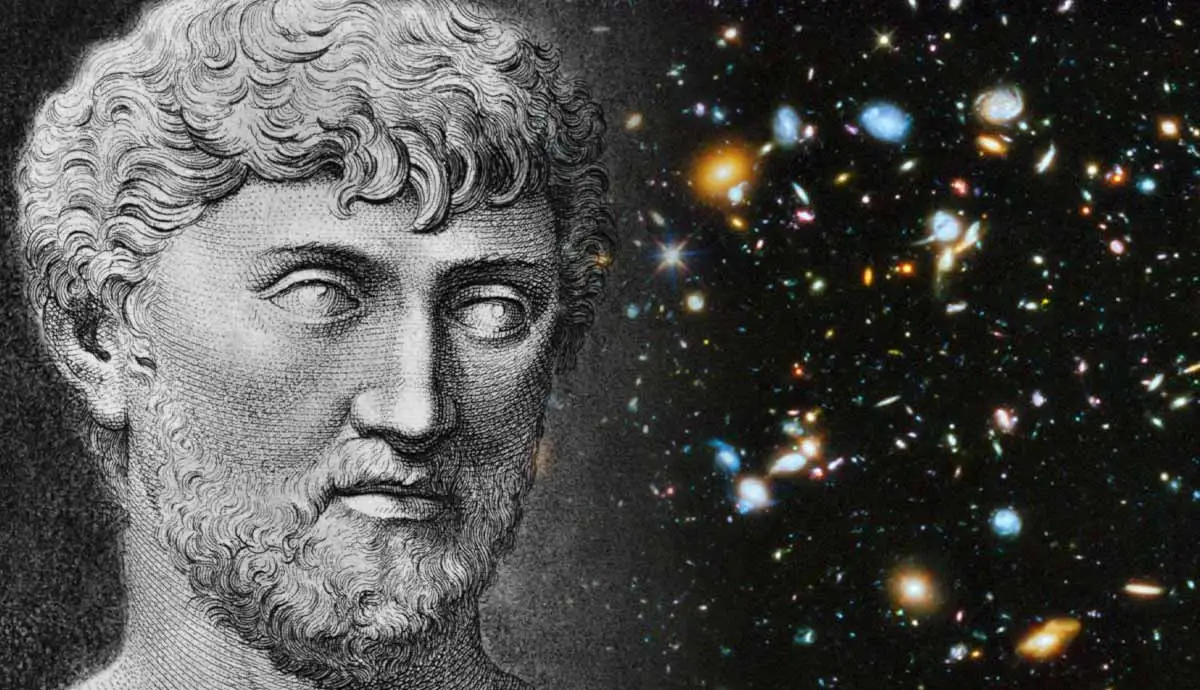
Lucretius, the renowned Roman philosopher and poet, continues to captivate our imagination with his profound insights into the nature of the universe and the human experience. Born in the 1st century BCE, Lucretius dedicated his life to observing and analyzing the world around him, leaving behind a rich and influential body of work. In this article, we will delve into the fascinating and lesser-known aspects of Lucretius’s life and philosophy. From his revolutionary ideas on atomic theory to his poetic masterpiece “De Rerum Natura,” we will explore the lasting impact Lucretius has had on the fields of philosophy, science, and literature. Prepare to be enthralled by these 9 captivating facts about Lucretius that shed light on his extraordinary contributions to the intellectual world.
Key Takeaways:
- Lucretius, a Roman philosopher and poet, wrote the epic poem “De Rerum Natura,” which had a big impact on Renaissance thinking and challenged conventional beliefs about the universe.
- Lucretius’ work emphasizes the pursuit of knowledge and the importance of understanding the natural world, inspiring and influencing thinkers even today.
Lucretius was a Roman philosopher and poet.
Lucretius, also known as Titus Lucretius Carus, was a Roman philosopher and poet who lived during the first century BC. He is best known for his epic poem “De Rerum Natura” (On the Nature of Things), which explores the principles of Epicureanism.
“De Rerum Natura” is Lucretius’ only surviving work.
De Rerum Natura” is Lucretius’ magnum opus, consisting of six books written in hexameter verse. It explores various topics including atomism, the nature of the universe, the soul, and the pursuit of happiness.
Lucretius’ work had a profound influence on the Renaissance.
Although Lucretius’ poem was largely forgotten during the Middle Ages, it resurfaced during the Renaissance and had a significant impact on scientific and philosophical thought. His ideas about the atomic nature of matter and the existence of voids between atoms foreshadowed modern scientific discoveries.
Lucretius was a follower of the philosophy of Epicurus.
Epicurus was an ancient Greek philosopher who emphasized the pursuit of pleasure and the avoidance of pain as the ultimate goal of life. Lucretius embraced these principles in his poem, seeking to liberate humanity from fear and superstition.
Lucretius’ writing is characterized by its eloquence and poetic imagery.
Lucretius’ poetic style is renowned for its beauty and evocative descriptions. His vivid imagery and persuasive language make his philosophical ideas accessible and engaging.
Lucretius’ theories on atomism challenged conventional beliefs.
Lucretius proposed that the universe is composed of indivisible particles called atoms, which combine and interact to form all matter. This concept challenged the prevailing belief in continuous matter and had a profound impact on subsequent scientific thought.
Lucretius’ work was rediscovered in the 15th century.
After being lost for centuries, Lucretius’ poem was rediscovered in 1417 by the Italian humanist and poet Poggio Bracciolini. Its rediscovery sparked a renewed interest in ancient philosophy and had a lasting impact on European intellectual thought.
Lucretius’ philosophy emphasizes the importance of understanding the natural world.
Lucretius believed that knowledge of the natural world was crucial for achieving a fulfilling and meaningful life. He advocated for the study of science and the pursuit of rational inquiry as a means of freeing oneself from ignorance and fear.
Lucretius’ work continues to inspire and influence thinkers today.
Lucretius’ ideas on physics, ethics, and the nature of reality continue to spark discussions and debates among philosophers, scientists, and scholars. His emphasis on the pursuit of knowledge and the importance of reason resonates with contemporary thinkers.
Conclusion
In conclusion, Lucretius was a fascinating figure in ancient Roman literature and philosophy. His work, particularly the epic poem “De Rerum Natura,” provided valuable insights into the nature of the universe, human existence, and the pursuit of happiness. Lucretius challenged traditional beliefs and advocated for a materialistic view of the world, emphasizing the importance of reason and observation. His ideas continue to be influential, inspiring thinkers and scholars to explore the mysteries of the universe. Whether you are interested in poetry, philosophy, or history, delving into the life and work of Lucretius is bound to be a captivating journey.
FAQs
Q: Who was Lucretius?
A: Lucretius was an ancient Roman poet and philosopher who lived during the first century B.C. He is best known for his epic poem “De Rerum Natura” (On the Nature of Things), which explores topics such as the nature of the universe, human existence, and the pursuit of happiness.
Q: What is Lucretius’ most famous work?
A: Lucretius’ most famous work is his epic poem “De Rerum Natura” (On the Nature of Things). This philosophical masterpiece explores ideas about the nature of atoms, the origins of the universe, the theory of evolution, and the pursuit of pleasure and inner peace.
Q: What were Lucretius’ main philosophical beliefs?
A: Lucretius was a proponent of Epicurean philosophy, which emphasized the pursuit of pleasure, inner peace, and the avoidance of unnecessary desires and fears. He believed that the universe was made up of tiny indivisible particles called atoms and that all natural phenomena could be explained by the interactions of these atoms.
Q: What was Lucretius’ impact on later philosophers?
A: Lucretius’ work had a significant impact on later philosophers and thinkers. His ideas laid the foundation for modern scientific thinking and influenced the likes of Galileo, Isaac Newton, and Charles Darwin. His emphasis on reason, observation, and the natural world continues to resonate with scholars to this day.
Q: Was Lucretius well-known during his lifetime?
A: It is believed that Lucretius’ work did not gain widespread recognition during his lifetime. However, after his death, his poem “De Rerum Natura” gained popularity and became influential among later generations of philosophers and intellectuals.
Lucretius' groundbreaking ideas continue to captivate minds, much like the timeless tales in Homer's Iliad, a masterpiece of ancient literature. His theories on atomism paved the way for modern scientific thought, similar to how radio astronomy has expanded our understanding of the nature of the universe. Lucretius' work laid the foundation for the study of atomic structure, which has revolutionized our perception of the world at its most fundamental level. Explore these fascinating topics and uncover the secrets that have shaped our understanding of the cosmos and the very fabric of reality.
Was this page helpful?
Our commitment to delivering trustworthy and engaging content is at the heart of what we do. Each fact on our site is contributed by real users like you, bringing a wealth of diverse insights and information. To ensure the highest standards of accuracy and reliability, our dedicated editors meticulously review each submission. This process guarantees that the facts we share are not only fascinating but also credible. Trust in our commitment to quality and authenticity as you explore and learn with us.


